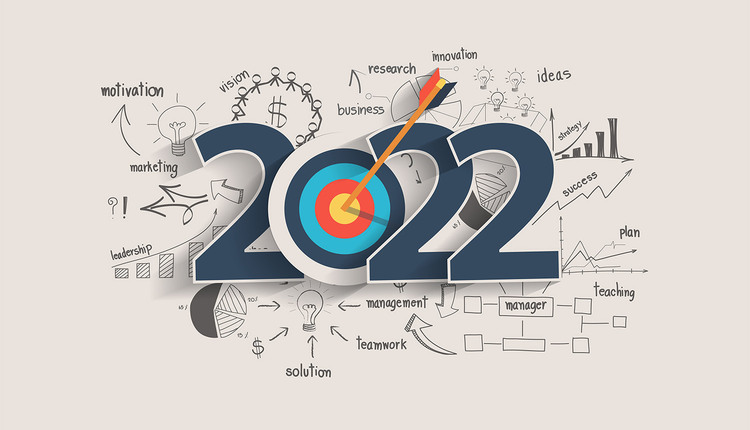The mailing industry is going through an era of disruption fueled by changes in technology and postal policy. We need to work together to address these issues and ensure the continued relevancy of mail. An essential element to any success will be finding ways to bring together people from different generations.
We hope this conversation between someone in his thirties (Clayton) and someone in his sixties (Mark) helps start more discussion across the generations.
How do you think the different generations perceive changes in technology?
Clayton: My generation, and people younger, have this expectation of technology to be constantly changing. Think of rapid changes in phone technology – rotary phones, push-button phones, cordless phones, caller ID, pagers, cell phones, and now smartphones. The rate in which we’ve experienced change is impressive.
So, when you talk about that resistance to change in our industry, it has the potential to drive millennials out. If we don’t continue to see change, we might lose those individuals. We need to incorporate and embrace change in our industry. Ultimately, losing key players in a niche industry is not a game that we want to play.
Mark: I agree with you. Our industry, by nature, is very conservative. If you make an error in a mail piece, it’s there for everyone to see. And being correct, especially in transactional mail, is most important.
Back in the 1990s, modifying the print file after it was created was introduced. That software allowed for changing addresses in the print file, and also file-based processing for inserting, Companies were slow to adopt to that change… until they saw it successfully used by another operation.
How will the next generation impact the industry?
Clayton: At the top, I think the emphasis will be on personalization. We value personalized experiences, like tailored messages in marketing campaigns. Everything produced will have a taste of personalization. We know that the key to better ROI is advanced targeting, so this trend should align with industry best practices.
Mark: Companies can take advantage of the data they have to make their messages more personal. And they now have the USPS Informed Delivery platform to push that further.
Clayton: Exactly. Informed Delivery is a service that provides a digital preview of your incoming mail, plus email notifications about expected deliveries. Younger generations [are] likely to embrace things like this because it connects us.
Also, it provides more data back to the company sending the mail – instant data. Everything we touch and do has to use data. That leads to the question – did I make the best decision I could using all the tools at my disposal? Informed decisions lead to a better experience and engagement with the customer. Think Yelp; you read a restaurant review, you see ratings, you get a peek at the menu. We used these to make a decision and now are fully engaged with [our] purchase. The industry will continue to leverage actionable data and increase engagement.
Mark: We need people who love data in our in our industry as much as we need people who love paper and print and postal regulations. We need people who love data, and understand how to use the data collected throughout the process – addresses, print, production and postal – to improve efficiency and effectiveness.
What’s the biggest barrier you encounter when speaking to someone from a different generation?
Clayton: When I'm speaking to someone from a different generation, perceptions come to mind. Often, there's perceived lack of experience. Especially in our industry. It exists anytime there's a 10-year gap, in every industry – whether you’re a mechanic, or a printer, or work in the digital space. That leads to questions about your credibility and to be taken seriously.
Mark: You used the word “perception,” and I couldn’t agree more. It works in both directions. Those of us who are older need to remember what it felt like to have our ideas dismissed. Likewise, younger members of the industry can’t dismiss the concerns being raised about the impact of change. I’m not talking about people putting up roadblocks, but someone holding a caution sign.
What strategies have you found effective in bridging the communication gap between different generations in the workplace?
Mark: They key remains with perception, and I think the way you better understand perceptions is by intentional connections. This isn’t something that can happen by accident, but must be done thoughtfully and on purpose. That includes not only considering the messaging, but the platforms used. I may talk to my brother on the phone, but I text my nieces and nephews.
Clayton: It has to be a goal, in other words.
And for younger people, you need to demonstrate your expertise on any subject, because that's what others are looking for. Show that you've done your homework by presenting well-researched data and case studies. Our industry is big on case studies, and others respect and appreciate it.
Show how your ideas have succeeded elsewhere. This industry is adaptable, but you have to support your proposal and back it up.
Also, pick the brains of someone you know from an older generation. You must seek mentorship opportunities that are right for you. The Leaders Connect program, supported by the industry and the USPS, is a great place to start. If you are looking to partner with known industry stalwarts and add value to your current or future employer, sign up for Leaders Connect today!
Mark: The last point I’d like to make is the importance of reaching out to others who aren’t from the same generation. For those of us who are older, those connections will remind us how important it is to help those who will take our roles.
Clayton: I do feel like Millennials, which I am a proud member of, are a bridge to prior and future generations. This conversation underscores the importance of bridging generational gaps through intentional connections. Millennials' adaptability to rapid technological changes needs to be balanced with the conservative nature of the industry.
Clayton Rozario is Senior Product Manager, BCC Software. He can be reached at crozario@bccsoftware.com.
Mark M. Fallon is President, The Berkshire Company. He can be reached at mmf@berkshire-company.com.
This article originally appeared in the September/October, 2024 issue of Mailing Systems Technology.






![GettyImages-1272922073-[Converted]](https://cms-static.wehaacdn.com/mailingsystemstechnology-com/images/GettyImages-1272922073--Converted-.1705.widea.0.jpg)


